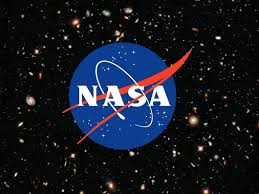Why the US Should Increase NASA’s Budget
An article created to convince the reader why the United States should raise NASA’s budget to

Nasa’s Google plus account profile picture.
March 11, 2019
The year is 1969, the United States and the United Socialist Soviet Republics (USSR) were in the midst of the terrifying Cold War. Six years prior, the United States launched the Apollo Space program, which had been working to beat the Soviets to the moon. The United States at the time was not very optimistic about the project, having been beaten to space by the Soviets in 1961. But that would change on July 16th of 1969. On that day in July of 1969, 530 million people watched as Neil Armstong said the words “One small step for a man, one giant leap for mankind.” The United States led 5 more manned landings to the moon until 1975 when the Apollo program was officially put to rest.
Currently, the year is 2019, and the United States is under the presidency of Republican Donald Trump. President Trump is a strong supporter of US Defense and a strong domestic economy. He is a strong supporter of the scientific works of the United States, stating in his State of the Union Address that science has helped the United States and hopes that it will be able to eradicate HIV and childhood diseases. It is clear that his administration supports the work of NASA as, under his administration, NASA’s funding has been improved by one billion dollars from $19.5 Billion to approximately $20.7 Billion. While this may sound like a large amount of money, this only makes up about 0.5% of the entire Federal Budget. For reference, the US spends about $590 billion on defense or 15%of the entire Federal budget. In comparison, the highest percentage of the Federal budget dedicated to NASA has been just over 4.5% in 1967. So why did the Federal budget allocation percentage drop by about 4%?
After finally beating the Soviets to the moon in 1969, the enthusiasm for space exploration dropped among the US population. The US dropped NASA’s funding percentage progressively to about 1% of the Federal budget in 1976, or by about 3.5% in one decade after the height of the budget. Another reason for this decline in funding and enthusiasm was most likely due to the recession from 1973 to 1975, causing Americans to focus more on the here and now rather than space exploration. But it has been almost 50 years since we landed on the moon for the first time. So, should the United States raise the percentage of NASA’s Federal budget, or at least create a plan to raise the budget gradually?
Well, that’s a complicated question. The first obvious obstacle is the issue of dedicating the funds to increase NASA’s budget. Dedicating more funds to NASA would require either the allocation of funds from other agencies such as defense or Medicare, or increasing the taxes paid by the United States public. The issue with this is that decreasing the funds to any program or increasing taxes would harm some citizens of the United State and would lead to conflict between supporters of both sides. The most likely way this could be pushed through is in an equitable compromise which would make the prospects of raising the budget far more appealing. Another potential obstacle could be the same that took down the budget in the first place. Without significant enthusiasm from the United States public, this plan could never be conceivably put through for a long period of time. This, however, could be circumvented through a significant accomplishment such as landing the first man on Mars, or a cataclysmic event which would bring this issue to the forefront of American Politics.
Raising NASA’s budget would be significantly beneficial for the entirety of the human race, and particularly beneficial to the US. Not only would increase funding the NASA stimulate further space exploration and missions, but it would also stimulate the US economy. For every dollar that the government dedicates to NASA, it increases the national GDP by approximately $10. This addition to the economy could, in effect, cover its own cost. This, in it of itself could possibly re-coop the cost and then some, potentially relieving some of the debt of the United States. Alongside this stimulation of the US economy, it would also stimulate NASA’s main purpose, space exploration. If the budget of NASA is raised by any percentage, the estimated time till a space mission, or ambitious space mission to say put a permanent base on the moon, or establish the first colony on Mars. But NASA isn’t just a space exploration administration, it also leads the way for various innovations such as phone cameras, portable computers, CAT scans, water purification, athletic shoes, and wireless headsets.
All and all, increasing the budget for NASA would drastically improve the entirety of the human race. From increasing technological discoveries and boosting the economy, to space exploration and colonization to save our race from eventual extinction when Earth eventually becomes uninhabitable for human life whether through climate change or a collision with a celestial body. Then we will be able to secure the future for all humans who will proceed us.

